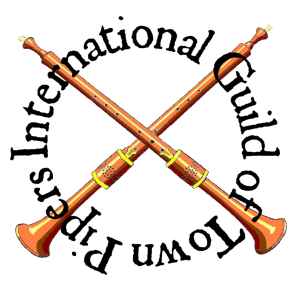Dublin Waits
|
Records of the Dublin Waits, extracted from: B Boydell (1980) Dublin City Musicians in the Late Middle Ages and Renaissance, to 1660. Dublin Historical Record 34, 42-53. 1465: 1466: 1561: 1563: 1566: |
The following paragraph is an extract from Grattan Flood’s paper on the Dublin waits.
On 7 July 1591 regarding the city waits of Dublin, it was unanimously agreed by the city corporation “that every alderman shall pay eighteenpence yearly; every of the number of XLVIII shall pay twelve pence yearly; and every of the four score and sixteen shall pay nine penceyearly; and every house in the city other than the houses of the said persons shall pay four pence yearly; the same to be paid every half yearduring our good liking of the said musicians.
From Alan Radford, 23 Feb 2015
DUBLIN: A J Fletcher, Drama and the Performing Arts in pre-Cromwellian Ireland. Boydell and Brewer, 2001, ISBN 0 85991 573 5
The Dublin Waits, first on record from 1465 (though a band of pipers was already in existence by 1456), existed primarily to serve the civic weal, and were allowed to stray further afield in search of patronage only with the Mayor’s prior approval and then only for brief periods. Their first duty was to be available in the city to service the machinery of civic ceremonial. Sometimes they functioned in close proximity to actual civic drama, as in 1561 when after dinner and a pageant of the Nine Worthies organised by the Mayor for the new Lord Deputy, Sir Thomas Radcliffe, the City Waits accompanied the Lord Deputy back to his lodging at the end of the evening.
Waits’ livery of blue or watchet colour, bearing the city coat of arms.
In 1603, on the accession of James I, twelve yards of cloth allocated for the waits’ new liveries. As typical amount for livery was three yards, that indicates four waits.
Dublin 1724-1725According to Cowgill and Holman, “Music in the British Provinces 1690-1914”, Ashgate, 2007, Thomas Johns(t)on was a Dublin Wait in 1724 and Callaghan MacCarty joined in 1725. |
From the Dublin Assembly Roll, 1692-17141692 That John Walter Beck and Richard Roberts be and are hereby chosen and admitted to be members of the Cittie Musick. 1692 Whereas Patrick Jones and the rest of the Cittie musick preferred their petition to the said assembly, shewing that severall idle persons in and about the cittie, under the name of petitioners, goe about publickly in companyes to persons of quallity and others to play and receive money from them in the petitioners names and thereby deprive them of their livelihood, and intrude on the priviledge allowed them, to the lessening the grandeur of the cittie and contrary to the practice of other corporations in England; the petitioners therefore humbly prayed the said assembly that mall such persons might be suppressed from time to time: its is therefore ordered and agreed upon, by the authoritie of the said asembly, that the matters above mentioned be referred to the consideration of the Lord Mayor of the citty, who is desired, together with the other magistrates of the cittie, to see justice done the petitioners, and that such persons as shall presume to play upon instruments of musick for lucre or gaine, not licensed by the citty or the government, be punished according to law in such cases provided. 1695-6 That John Crackinthorpe be and is hereby admitted to be one of the citty musick, with the usual sallary and perquisitts, to continue during the pleasure of the citty. 1696 Whereas Patrick Jones, Charles Brickenden and Roger Taylor, on behalf of themselves and the rest of the city musick, preferred their petition to the said assembly, setting forth that they had been at great charge in sending into England for wind instruments to the value of twenty pounds sterling, for the use and service of this citty; they therefore prayed this assembly to give them some allowance towards the charge thereof; it is therefore ordered and agreed upon, by the authority of the said assembly, that the treasurer of the citty doe, on the Lord Mayors warrant, pay unto the petitioners five pounds, sterling, towards the expenses they have been at in providing their present wind instruments and that the same be allowed him on his accounts. 1696-7 That Henry Etherington bee and is hereby admitted one of the citty musick during the pleasure of this citty. 1698 Thomas Johnson, James Johnson are admitted of the number of the citty musick, with the usuall sallary and allowance during the pleasure of the citty. 1701 Stephen Bannister is admitted one of the citty musick, with the usual allowance, in the place of Richard Holt, deceased, during the cittys pleasure. 1704 John Stephenson, musitian, is admitted one of the city musick, during the citys pleasure, in the place of Henry Etherington, deceased. 1706 Ordered that Nathan Ellison be admitted one of the city musick in the place of Stephen Bannister, deceased, during the citys pleasure. 1712-3 Upon information of Mr. Sheriffe Surdevill, that James Johnson, one of the city musick, did affront him, the said Sheriffe Surdevill, by saucy language and very rude behaviour whilst he was entertaining his company in the Tholsell; upon examination of the said James Johnson at the board before the Lord Mayor and aldermen, and it appearing that he was guilty of the said misbehaviour: it is ordered that the said James Johnson be suspended from his place or office as one of the said city musick, and from all future benefit and receipt of salary on account of the said office during the pleasure of this city. 1714 On the petition of George Wangle, prayiong to be one of the city musick: granted, during the citys pleasure. |
